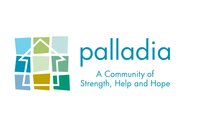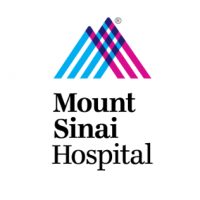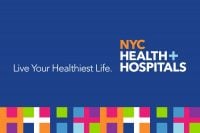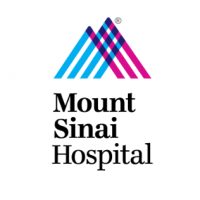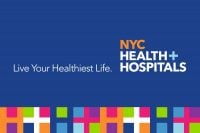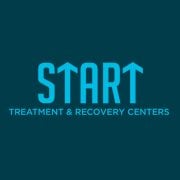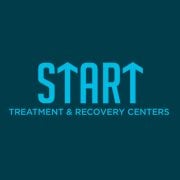Palladia - Esperanza Transitional Shelter
Drug Rehab Center in New York, New York
Palladia is a Drug Rehabilitation Facility located in New York, New York which provides Inpatient and Sober Living/Half-Way levels of care for those suffering from substance and drug addictions, including alcoholism and opioid addiction. Palladia's services aim to treat the person holistically and provide long-term sobriety, and include detoxification, residential treatment, PHP, IOP, aftercare/continuing care, and family programs.
Multiple patients have reported Palladia - Esperanza Transitional Shelter as permanently closed.
Research other rehabs in New York, New York, or get help finding an open facility.
About Palladia - Esperanza Transitional Shelter in New York
Palladia - Esperanza Transitional Shelter, located in New York, NY, is a facility that offers treatment and support for individuals seeking recovery from alcoholism, opioid addiction, substance abuse, and drug addiction. With a focus on helping people overcome their addictions, Palladia - Esperanza Transitional Shelter provides a range of services and levels of care to cater to individual needs. Their services include drug rehab, inpatient treatment, sober-living/half-way houses, and residential support.
At Palladia - Esperanza Transitional Shelter, individuals struggling with addiction can expect a comprehensive approach to their recovery journey. The facility offers a variety of treatment methods designed to address the specific challenges associated with alcohol and drug dependency. These methods may include counseling, therapy sessions, group support, and educational programs. With a strong commitment to helping individuals achieve long-term sobriety, Palladia - Esperanza Transitional Shelter provides a compassionate and supportive environment for individuals to heal and rebuild their lives.
Genders
Ages
Modality
Additional
Conditions and Issues Treated
Substance abuse is a severe problem that affects many people in New York, NY. It is characterized by the excessive and inappropriate use of drugs, including alcohol, medications, and illicit drugs. Substance abuse can lead to physical or psychological dependence and affect social life and relationships. Treatment options include medications, counseling sessions, behavioral therapy, and group therapy. If you are suffering from substance abuse, contact for the latest treatments available.
Opioid addiction is when someone becomes addicted to opioids. This can happen quickly due to any opioid use. Opioid withdrawal can be uncomfortable and lead the user to continue using even if they want to quit. It’s best to receive inpatient treatment for detoxification.
Even if a person doesn’t need inpatient treatment, it’s recommended to start rehabilitation or at least some kind of outpatient treatment. This is because the withdrawal symptoms from opioids can be uncomfortable and unpleasant, to the point that a person could end up using again or worse.
Detoxification should be done to break the physical addiction of opioids. This can be done with opioid replacement therapy, medication-assisted therapy, or a more traditional detoxification program. Intensive outpatient treatment is a form of addiction care that allows patients to continue living at home while undergoing treatment. This type of care is appropriate for patients who have been treated in residential treatment programs. Intensive outpatient programs include regular visits to the facility providing therapy, and patients gradually return to their routine life. IOP benefits most when patients have a supportive family member or friend to help them recover.
The first step to getting into an intensive outpatient program is to attend a detoxification facility. Detoxification facilities are designed to remove substances from the body safely. The patient will attend sessions designed to help them understand their addiction and its impact on their lives. While in an intensive outpatient program, therapy sessions are scheduled three to five times per week, with the patient attending no more than two sessions in one day.
Levels of Care Offered
This center offers a variety of custom treatment tailored to individual recovery. Currently available are Drug Rehab, Inpatient, Residential, Sober-Living / Half-Way, with additional therapies available as listed below.
Inpatient facilities offer a complete rehab program where the patient stays for an extended period. This allows the staff to monitor the patient on a round-the-clock basis and provide medical assistance if needed.
A significant benefit of inpatient rehab is that it allows for a safe environment for treatment. The patient doesn’t have access to drugs or alcohol, and they’re surrounded by people that want them to succeed and change their lives. Treatment starts with detox and behavioral therapy, followed by group therapy and family involvement.
Sober living homes are transitional houses for recovering addicts who need more structure than they would receive in an aftercare program. Specific rules and regulations are enforced in these homes, which are beneficial for people who need a greater degree of structure than other types of treatment.
Sober living home options include:
- Live-in managers – might be beneficial to people who do not have a support system in place at home, or who experience high levels of stress between work and home life.
- House managers – House managers are beneficial for people who do not have a strong social network to rely on, or who are concerned about relapse in their daily lives.
- House parents – House parents are beneficial to people who reside in areas without a strong aftercare program for support.
Residential treatment programs are those that offer housing and meals in addition to substance abuse treatment. Rehab facilities that offer residential treatment allow patients to focus solely on recovery, in an environment totally separate from their lives. Some rehab centers specialize in short-term residential treatment (a few days to a week or two), while others solely provide treatment on a long-term basis (several weeks to months). Some offer both, and tailor treatment to the patient’s individual requirements.
Therapies & Programs
Individual Therapy is a crucial component of addiction recovery. Therapists work with patients to identify the root of their addiction and figure out how to better handle the issues that led to them using drugs. Individual Therapy is one on one sessions where people meet with their therapist. Individual therapy provides a safe space for people to open up and discuss personal and sensitive topics which they may not feel comfortable discussing in a group setting.
In this type of therapy, therapists can develop specific solutions for each patient, which helps speed up their recovery process. In addiction recovery, therapy is a crucial part. It allows patients to go deep into their core issues and discover how those problems can be better handled now. Therapy can be performed in individual sessions as well as group settings. In individual therapy for addiction, the patient meets with the therapist one-on-one to focus on the underlying issues of addiction and come up with solutions to prevent future abuse.
Payment Options Accepted
For specific insurance or payment methods please contact us.
Palladia Associated Centers
Discover treatment facilities under the same provider.
- Palladia - Comprehensive Treatment in New York, NY
- Palladia - Starhill Residential in Bronx, NY
- Services for the Underserved/Palladia Starhill IR in Bronx, NY
- Palladia - Bronx in Bronx, NY
- Palladia - Continuing Care in New York, NY
Learn More About Palladia Centers
Additional Details
Specifics, location, and helpful extra information.
New York, New York 10029 Phone Number(212) 722-7507 Meta DetailsUpdated November 25, 2023
Staff Verified
Palladia - Esperanza Transitional Shelter Patient Reviews
There are no reviews yet. Be the first one to write one.
New York, New York Addiction Information
More than 2 million New Yorkers are currently suffering from some type of substance abuse and many of those are minors. Alcohol abuse, in particular, is prevalent among those underage. As a result of the high prices and regulation of prescription drugs, many New Yorkers turn to heroin instead. This has led to a serious heroin epidemic in the state.
According to recent statistics, over 280,000 people in the state struggle with drug addiction. This accounts for approximately 8% of the population. In 2011, there were 1,532 deaths related to cocaine overdose in New York City. Currently, in New York City, there are over 3,000 people addicted to heroin and 1,700 addicted to cocaine. Most treatment plans offered in the area will involve some combination of detoxification, counseling, and medication.
Treatment in Nearby Cities
- Hempstead, NY (18.1 mi.)
- Ellenville, NY (68.1 mi.)
- Tarrytown, NY (20.1 mi.)
- Ballston Spa, NY (152.8 mi.)
- Yorktown Heights, NY (34.2 mi.)
Centers near Palladia - Esperanza Transitional Shelter
The facility name, logo and brand are the property and registered trademarks of Palladia - Esperanza Transitional Shelter, and are being used for identification and informational purposes only. Use of these names, logos and brands shall not imply endorsement. RehabNow.org is not affiliated with or sponsored by Palladia - Esperanza Transitional Shelter.
